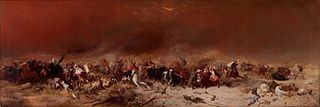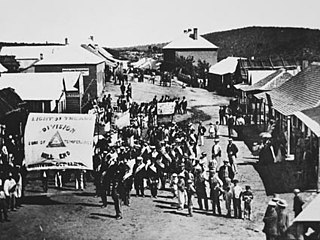 W
WThe history of Australia is the story of the land and peoples of the continent of Australia. Aboriginal Australians first arrived on the Australian mainland by sea from Maritime Southeast Asia between 50,000 and 65,000 years ago, and penetrated to all parts of the continent, from the rainforests in the north, the deserts of the centre, and the sub-Antarctic islands of Tasmania and Bass Strait. The artistic, musical and spiritual traditions they established are among the longest surviving such traditions in human history.
 W
WThis article covers the science, art and industry of cartography by the people of the Low Countries in the early modern period, especially in the early 16th to early 18th centuries. It includes cartography of the Northern Netherlands, Southern Netherlands and Low Countries in general. It also includes Dutch colonial cartography, i.e. cartography in the Dutch overseas world, in the early modern period.
 W
WIslam in Australia is a minority religious affiliation. According to the 2016 Australian Census, the combined number of people who self-identified as Muslim in Australia, from all forms of Islam, constituted 604,200 people, or 2.6% of the total Australian population, an increase of over 15% of its previous population share of 2.2% reported in the previous census 5 years earlier.
 W
WHonest History is a professional coalition of historians in Australia. Founded in March 2013, the coalition sought to challenge national myths surrounding ANZAC involvement in the Gallipoli Campaign. The coalition argued that historical interpretations of Australia’s involvement in the First World War (1914–1918) have been contested among historians and have evolved over time. In combating the popular narratives and political rhetoric related to Anzac Day, the coalition sought to provide historical evidence to provide a more “balanced” view of the period.
 W
WThe name Australia is derived from the Latin australis, meaning "southern", and specifically from the hypothetical Terra Australis postulated in pre-modern geography. The name was popularised by the explorer Matthew Flinders from 1804, and it has been in official use since 1817, replacing "New Holland," an English translation of the Dutch name, first given by Abel Tasman in 1643 as the name for the continent.
 W
WMary Ann Parker (1765/6–1848) was an English traveller and writer whose 1795 book A Voyage Round the World, in the Gorgon Man of War included the first published description by a woman of an Australian colony.
 W
WThe Shadowcatchers: A history of cinematography in Australia is a photographic history of Australian cinematography, written by Martha Ansara and published by the Australian Cinematographers Society, which launched the project for its 50th Anniversary in 2008.
 W
WThe temperance movement has been active in Australia. As with the movement internationally, in Australia it has sought to curb the drinking of alcohol. The temperance movement had some success in the early twentieth century, although from the Second World War its influence declined. Nevertheless, temperance organisations remain active today.
 W
WThe Territory of Papua and New Guinea, officially the Administrative Union of the Territory of Papua and the Territory of New Guinea, was established by an administrative union between the Australian-administered territories of Papua and New Guinea in 1949. In December 1971, the name of the Territory changed to "Papua New Guinea" and in 1975 it became the Independent State of Papua New Guinea.
 W
WWestern civilization traces its roots back to Europe and the Mediterranean. It is linked to ancient Greece, the Roman Empire and with Medieval Western Christendom which emerged from the Middle Ages to experience such transformative episodes as the Renaissance, the Reformation, the Enlightenment, the Industrial Revolution, the Scientific Revolution, and the development of liberal democracy. The civilizations of Classical Greece and Ancient Rome are considered seminal periods in Western history; a few cultural contributions also emerged from the pagan peoples of pre-Christian Europe, such as the Celts and Germans, as well as some significant religious contributions derived from Judaism and Hellenistic Judaism stemming back to Second Temple Judea, Galilee, and the early Jewish diaspora; and some other Middle Eastern influences. Western Christianity has played a prominent role in the shaping of Western civilization, which throughout most of its history, has been nearly equivalent to Christian culture.. Western civilization has spread to produce the dominant cultures of modern Americas and Oceania, and has had immense global influence in recent centuries in many ways.